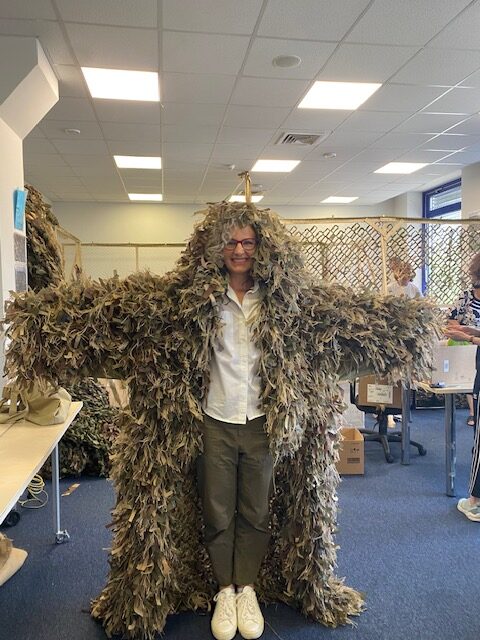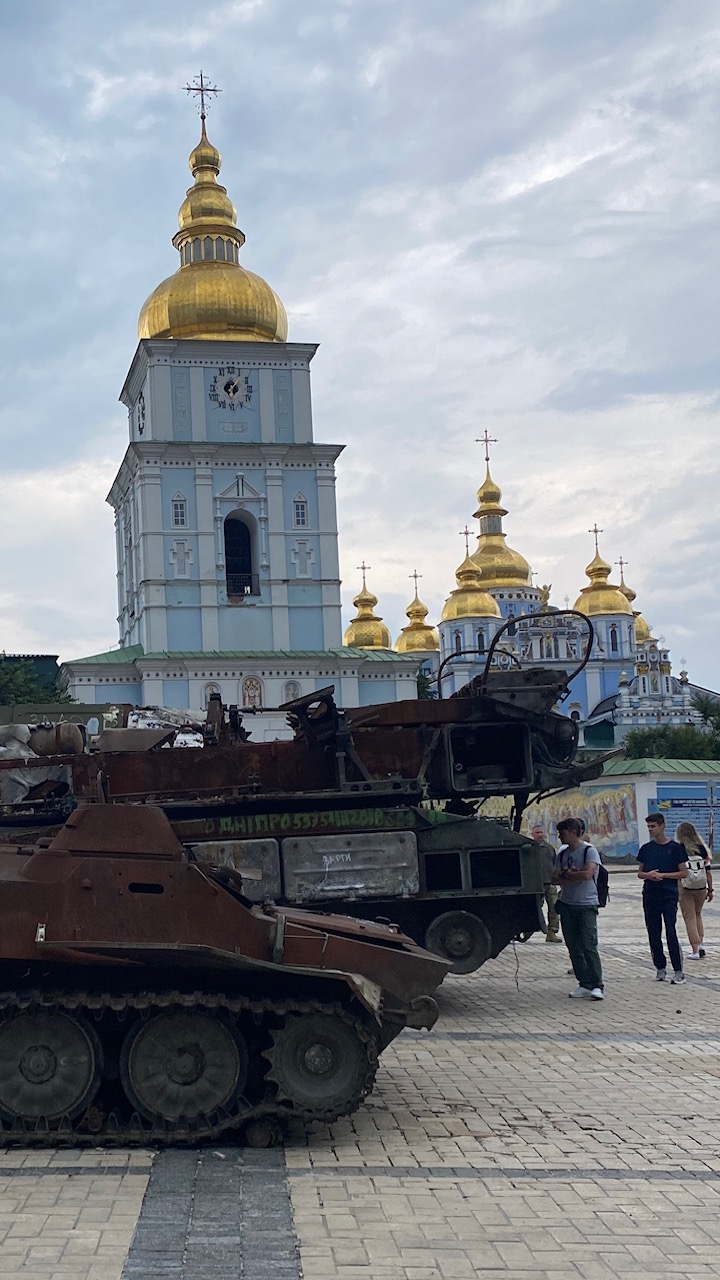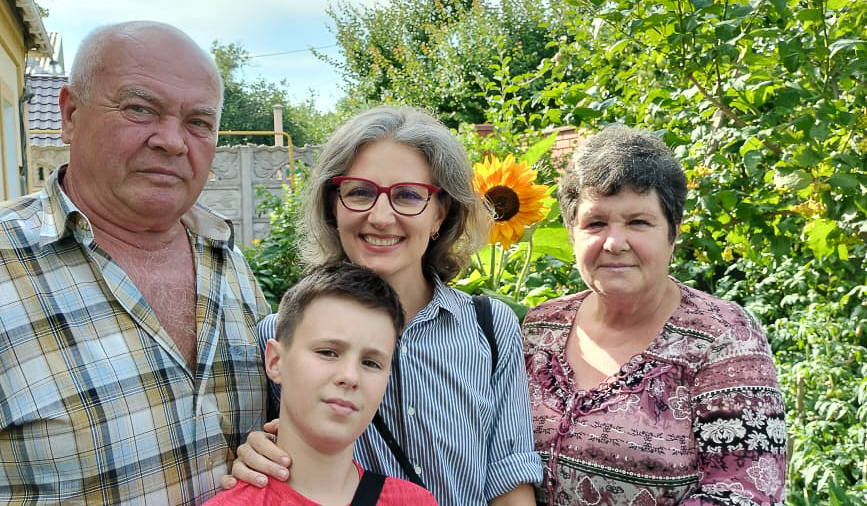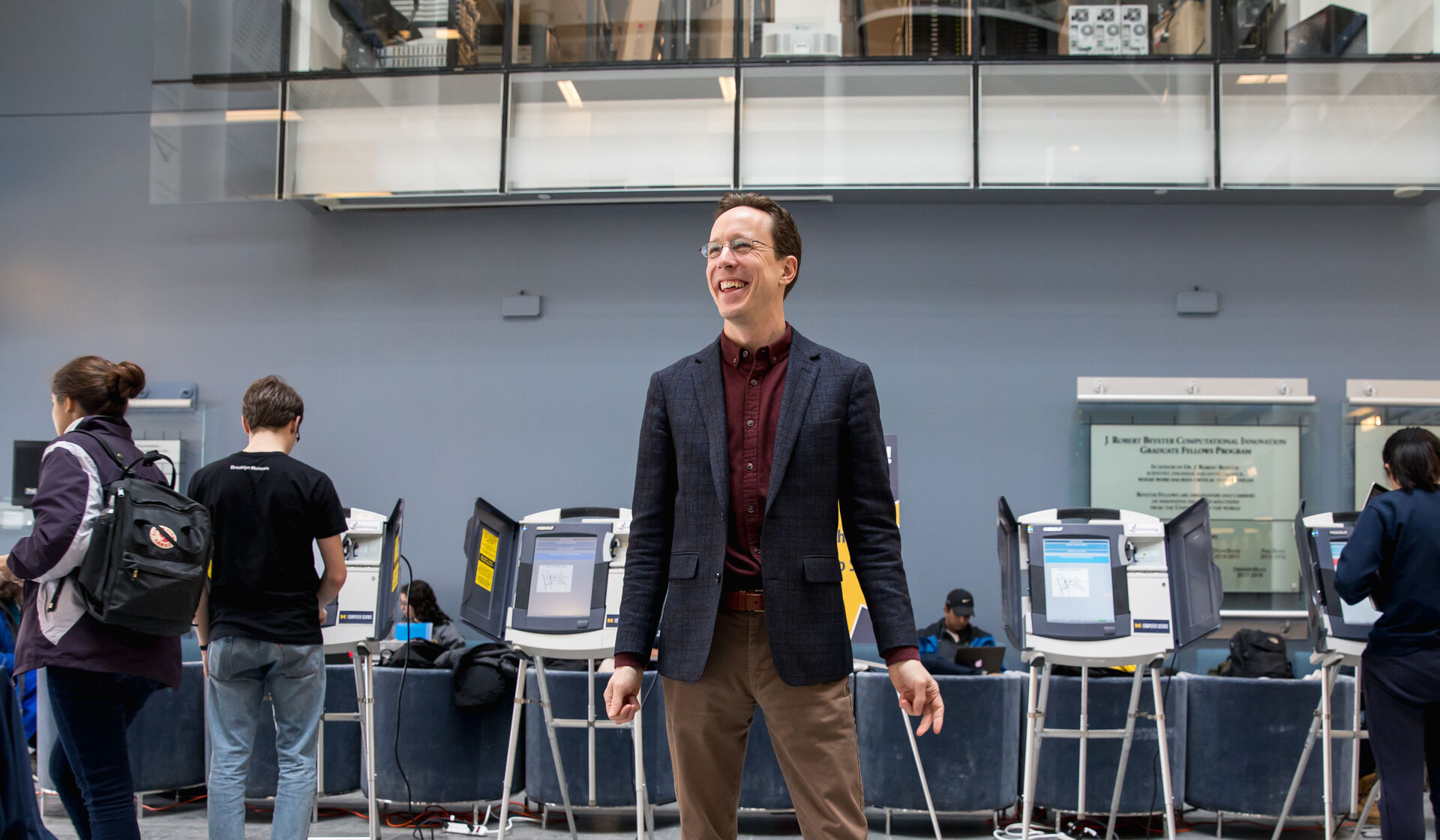When Danica Stanciu’s, ’99, two children graduated from high school, she saw her new empty nest status as an opportunity to take a step back, celebrate raising her children and 20-plus years in the workforce, and consider her next life chapter.
“Somehow sitting on the beach for a couple of weeks just didn’t seem to cut it,” Stanciu says. “I was attracted to the idea of service and then when the full-scale invasion [of Ukraine] began, I knew that I had found the opportunity.”
Stanciu had long had an interest in Ukraine and that area of the world. Her family was from the former Yugoslavia, she majored in Russian East European Studies at the University of Michigan, and her ex-husband was from Romania, so she’d spent decades traveling to and from the region.
In August 2022, six months after the Russian invasion of Ukraine, Stanciu left for Romania, which borders Ukraine and has accepted more than 160,000 Ukrainian refugees since the beginning of the war.
“I literally just showed up and said, ‘What can I do?’” Stanciu remembers. She worked at a community center where she helped in their food pantry, took people grocery shopping, and helped children practice their English by taking them on small field trips to get pastries or to local attractions like the botanical garden.
It was there that she met an 11-year-old refugee playing soccer who quickly stole her heart.
“It was actually through that experience that it cemented for me that this was the right thing for me to do and that I could do it. So then I really began to prepare in earnest for an extended period in Ukraine,” Stanciu says.
‘Volunteer Speed Dating’
Stanciu returned to Washington, D.C., where she lives, and began to take Ukrainian lessons, interact with the local Ukrainian community, and connected with Nate Mook, the former CEO of Word Central Kitchen, who had spent a significant amount of time in Ukraine.
“I asked Nate, through my friend’s introduction, if he would meet and give me advice on how to prepare for Ukraine. His advice was to simply show up. He said it was really difficult to coordinate volunteer activities from the United States, that there weren’t a lot of foreign volunteers in Ukraine, and that if I showed up — and with a little chutzpah — I would certainly find plenty of things to do,” Stanciu said. “And as scary as that was, that turned out to really be the best advice.”
Over the next year, Stanciu would take three trips to Ukraine, the first of which she calls a six-week “reconnaissance run.”
“[I was] doing three things: networking — meeting as many people as I could; what I call ‘volunteer speed dating’ — I volunteered at all of the opportunities I could find to see if I could find the fit; and I also traveled to visit all of the amazing people that I had met in Romania the year before, most of whom had returned to Ukraine,” Stanciu says.
Stanciu had an explicit agreement with her family that she would not travel to the front lines. So while volunteer speed dating, she hauled rubble for an organization that was repairing and rebuilding homes, raised money for different causes including helping an injured Ukrainian soldier fix his damaged teeth and getting as many diapers and feminine hygiene products to the front lines as possible, and helped build camouflage nets for the Ukrainian army with an organization comprised of Ukrainian neighbors looking to help in any way they could.

“Anyone and everyone is welcome to come: people come before work, after work, high school kids, retirees, people from the neighborhood, people who’ve been displaced from war zones, and foreign volunteers. And I have to say, it is the best of what civil society can do. It was really inspiring. My experience there, candidly, inspired me to be a more engaged citizen of my own country,” Stanciu says.
She also met countless Ukrainians while volunteering, who reaffirmed her commitment to being present in Ukraine.
“The single most common thing that I heard was not ‘Thank you’ for my volunteering efforts or any money that I donated. It was, ‘thank you for being here and letting us know we’re not alone,’” she says.
More Than a Warzone
After volunteering all week, Stanciu would travel by train on the weekends, though this originally made her feel a little conflicted.
“I traveled almost every weekend that I was in Ukraine, and I thought, ‘I’m not here to have fun, I’m here to work and I’m here to give.’ But I pretty quickly realized that, in fact, traveling and letting my friends show me that Ukraine was more than just the pictures of destroyed buildings on the news was also really important. They needed me to see the beauty of Ukraine, of what was being destroyed — what it could be, what it was, what it should be again.”
Through her volunteering, Stanciu found Save Ukraine, a charitable organization founded by former Presidential Commissioner for Children’s Rights Mykola Kuleba, which aids families and children affected by war and is particularly known for rescuing children abducted in the war.
In a piece about Save Ukraine published in November 2023, 60 Minutes states, “Officially, the Ukrainian government has documented more than 19,000 children taken by Russia, but told us they worry the actual number could be closer to 300,000 children.” Save Ukraine leveraged cross-country connections to develop an “underground railroad” of sorts to rescue children and bring them home. Once back in Ukraine, they offer educational programs, disability resources, and therapies to those rescued.
Stanciu returned to the U.S. in August to see her son and daughter off to college, but helped Kuleba organize meetings in Washington, D.C., to raise awareness and money for the issue of child abduction in Ukraine. Then, in October 2023, she returned to Kyiv and spent three months volunteering for Save Ukraine, helping with communications, fundraising proposals, and drew upon her U-M degree to write statements for Kuleba to the Canadian, British, and European Parliaments on the issue of child abduction.

Stanciu says living in Ukraine during wartime was like a “constant state of cognitive dissonance,” as she witnessed Ukraine’s beauty amid the reminders of war.
“When I was in Kyiv, the air raid siren would go off multiple times a day. I was there during drone attacks and missile attacks,” she says. “One of the most common questions I get was, ‘Were you scared?’ And, of course, I was scared. But I also knew that I was exactly where I should be, doing exactly what I should be doing. Somehow that provided me the strength to be there.”
After a final trip to Ukraine in the spring of 2024, Stanciu returned to the U.S. and now works as the senior vice president of Axious Pro Policy while continuing to support Ukraine.
She says that her professional gap year spent volunteering was very rewarding and recommends that, if possible, others looking to do the same take a similar approach as she did.
“If you’re thinking about making a big change, look for opportunities to try it on, like what I did going to Romania to work with Ukrainian refugees. That was an opportunity in a safe environment to understand if I could make an impact and be helpful,” Stanciu says.
“The biggest piece of advice I would give is the advice that I got from Nate Mook, which is just show up. If you show up and are open to the experience and the opportunity, it will find you and it will all work out. Your job is to just show up and to take that leap.”
Katherine Fiorillo is the editor of Michigan Alum.





